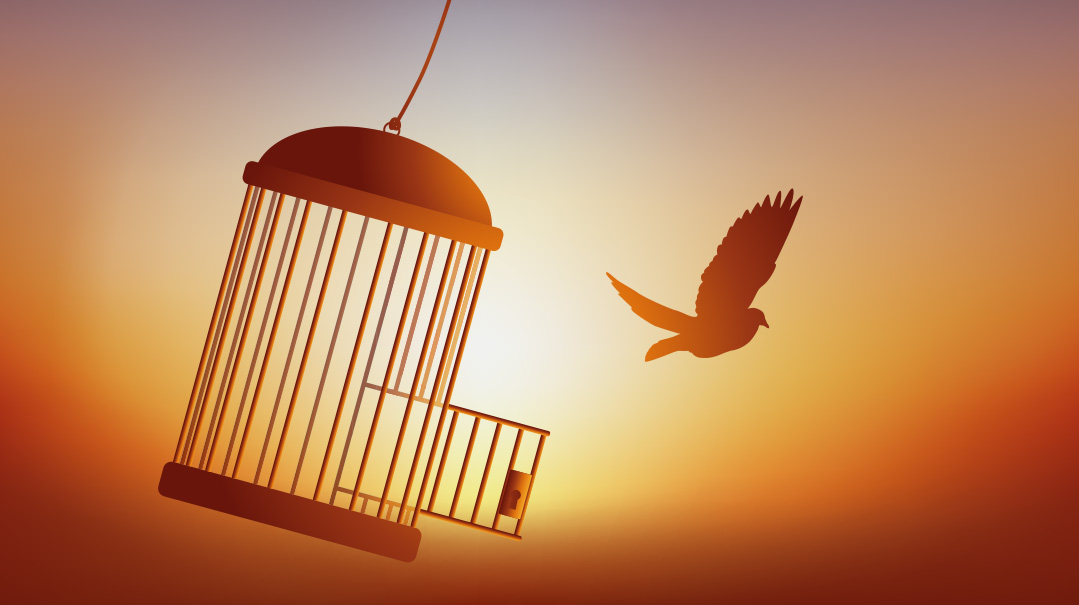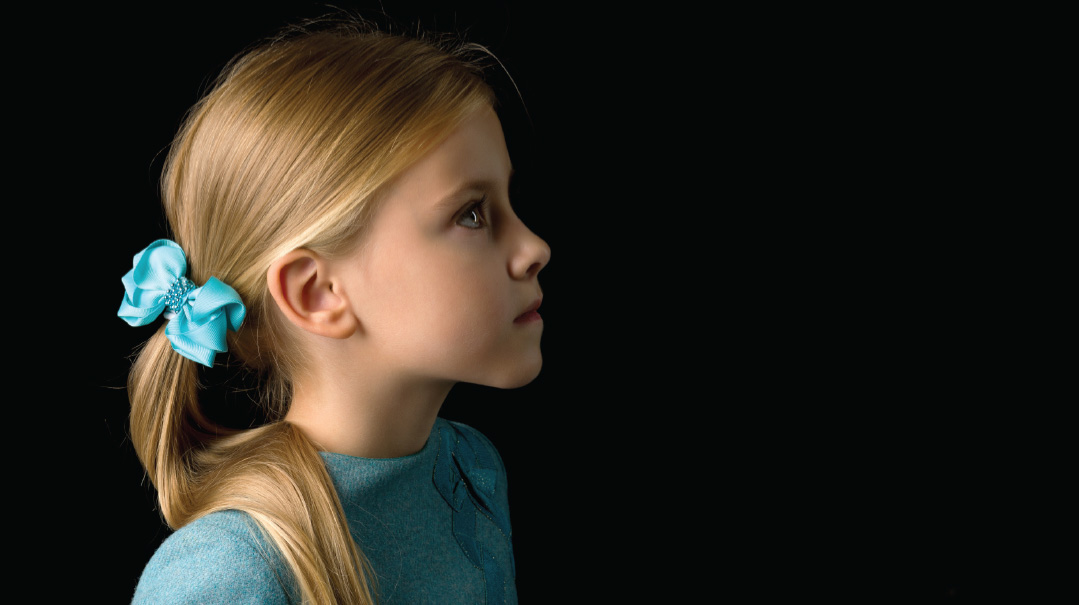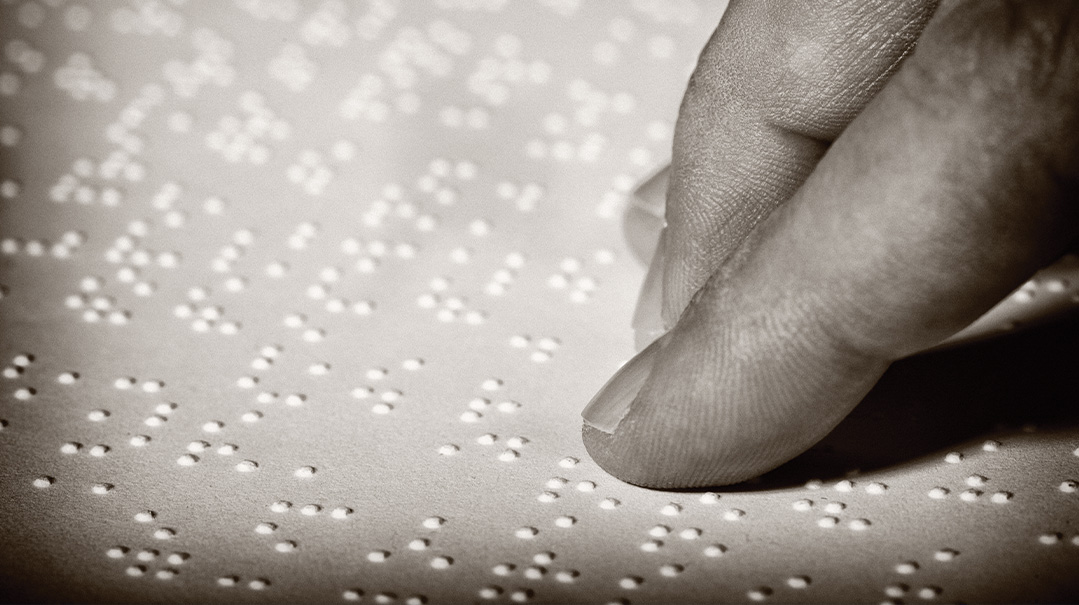Clearing My Name

She got straight to the point: “As you know, girls, we take bullying very seriously in our school”

I was born with a mischievous expression on my face. Or that’s what it seems like, anyway. In our old albums there are countless photos of me doing something I shouldn’t be doing while toothily grinning up at the camera, unabashed. That and being the youngest child, with a bunch of mischievous siblings, almost made it inevitable that I would have a spunky personality. I definitely gave my parents a run for their money.
In school, I was quite the monkey, too. If ever there was a trick played on a teacher, or a practical joke on a classmate, I was usually to blame. Still, I wasn’t malicious or nasty, even if I did add some gray hairs to certain teachers of mine. Despite my antics, school was good, and I made my way through most of my elementary years with no major issues. Then came high school.
I was in ninth grade, and it was a Tuesday. I know that, because we had triple period science class on Tuesdays, and we were right in the middle of it at the time. Mr. Sobel was enthusiastically drawing an abstract concept of physics on the board, when, without warning, the door squeaked, and was pushed wide open by our principal, Mrs. Kraus. The noise startled Mr. Sobel, who dropped his ever-present purple whiteboard pen from one hand, the lid from the other, while my classmates and I exchanged glances. What we had done to merit a visit, mid-science? From experience, it wasn’t a good sign.
“I’m sorry for disturbing, Mr. Sobel, but we have an urgent matter to discuss,” Mrs. Kraus said, striding to the front of the room while talking. She got straight to the point: “As you know, girls, we take bullying very seriously in our school.” Her gaze swiveled round the room, first one way, then the other. We shifted in our seats. “It has come to my attention that a girl in this class has been bullying a classmate.” Mrs. Kraus continued. “This is unacceptable, and we will be dealing with the culprit later. But meanwhile, I think this class needs to hear a little about bein adam l’chaveiro….” Mrs. Kraus launched into a full-blown speech while I breathed a sigh of relief. If she’d told us off about skipping class or ignoring homework, I would have been worried, but knowing that I’m certainly not a bully, I didn’t feel overly concerned. While Mrs. Kraus pronounced the consequences and dangers of bullying, I drew flowers on the corners of my loose-leaf, intricate leaves and stems and petals. Finally, after some more sharp words of rebuke, she walked out. There was an audible exhaling of breaths.
When the bell rang for recess, I joined my friend Tammy at her locker.
“What do you say to Mrs. Kraus’s lecture?” I asked, holding out a bag of pretzels. Tammy shrugged, took a pretzel and waved it agitatedly. “Yeah, bullying. Horrible.” At that moment, there was a tap on my shoulder; a tenth grader with a message: “Chaya, Mrs. Kraus wants you in her office.” Tammy raised her eyebrows. “What have you been up to now?” I winked at her. “All too much,” I said jokingly, but there was a funny feeling in my stomach.
I knocked on Mrs. Kraus’ door three minutes later with a confidence I didn’t feel, conscious of the curious stares of the girls milling around. “Come in,” came the summons. “Ah, Chaya, take a seat,” she gestured. Uh-oh.
There was a moment of silence. Mrs. Kraus took a long look at me, then began. “I’m assuming you know why you’re here, Chaya.” It was a statement, but I shook my head anyway. She gave me another long look, then a sigh. “Jokes are only jokes when they don’t harm people. The notes you wrote were not funny, and they caused your classmate a great deal of anguish. Do you know that Libby’s mother told me she no longer wants to come to school?”
At this, I started. Libby? Libby is the sweetest, gentlest girl in my class. She wouldn’t harm a fly! I would never have done anything to Libby! And anyway, notes? What is she talking about?
“I’m sorry, Mrs. Kraus,” I began respectfully, “but I actually don’t know what you mean. Someone wrote nasty notes to Libby?”
“Yes, Chaya,” came the grave response. “Someone did. And we are very sure we know who it was, too.”
My throat began to constrict. “But I didn’t do it!” I croaked. “It wasn’t me! I never write anonymous notes! I don’t bully!” My voice was petulant, I was innocent! But it was no good.
The meeting only got worse from that point on. Despite my repeated pleas of innocence, Mrs. Kraus was sure I was being untruthful, which upset her greatly, and me even more. Right then and there, she called my parents to take me home. I was being suspended — until I’d “admitted” to my wrongdoing. Jaws clenched, eyes flashing, I left Mrs. Kraus’s office and went to collect my knapsack.
“How could they not believe me?” I sobbed to my mother, later that evening. “I might be mischievous, but I’m not a liar!” My mother sighed, and nodded. Both my parents had already asked me if I’d written the notes, which did look weirdly like my handwriting, but they believed me when I said I hadn’t. Only thing was, now I was stuck at home until I admitted my guilt. And that, I wouldn’t do.
The next day, Wednesday, I slept in and hung around the house in pajamas. My friends called, wanting to know why I was home. I pretended I had the flu. Thursday came and went, too. My anger at the situation frothed away inside me, boiling and bubbling like crazy. On Friday, my parents went to school to meet with Mrs. Kraus.
I don’t know exactly what happened at the meeting, but I do know that my parents came home looking tired and frustrated. Taking off his hat and jacket, my father was the first to speak:
“Chaya, we know that you didn’t send these letters.” I nodded vehemently. He sighed and continued. “The problem is, your reputation is not helping you right now. To put it bluntly, it’s hard for us to prove that this wasn’t you….” His voice trailed off while the room swam before my eyes. I saw red.
“Fine.” I hissed. “I’ll stay home then. If they don’t want me, I don’t want them.” I marched out the door and stormed up the stairs to my room. Throwing myself onto my bed, the dam burst. I cried about the unfairness of this all — of the real culprit, going to school as normal, while I suffered at home. I cried at the horribleness of being disbelieved, and from hurt that people thought I couldn’t be trusted. I cried and cried and cried. The world was such an unfair place to live in.
That Friday night, after making a sullen appearance at the seudah, I lay awake, tossing and turning. I flipped the blankets one way, then the other, Shabbos lamp off, then on. How dare they? How could they? Why me? But something else was niggling, too.
Your reputation is not helping you…. Your reputation…. My father’s words danced around in my head. Round and round and round.
I knew I’d been judged terribly unfairly, but as those words percolated, there was a part of me starting to understand. I may not have done this thing, but I’d definitely caused plenty of trouble in the past, and I wondered if that’s how people saw me. As a troublemaker. A scoffer. A step away from being a bully. It was downright hurtful, but sadly, it kind of made sense. The thought stung.
I did a lot of thinking that Shabbos and Sunday. I thought about my pride, and how hard it would be to go back to school now. I thought about how bored and lonely I was at home. Did it make sense to cut off my nose to spite my face, and stay home indefinitely? And was there a way I could clear my name and start afresh? Slowly, I began to realize, there was.
I made the call myself in the end, after discussing it with my parents. Mrs. Kraus was shocked when she realized it was me on the line, but she heard me out as I explained it all: That I wasn’t guilty, but I was beginning to understand why they might think I was. And that I would do everything in my power to behave better, improve my reputation, and clear my name. I said it all, then took a massive gulp of air. Would she take me back? Would she believe me? She did.
I did change, after that experience. Yes, I was (and still am) upset at those who refused to trust me, but I also realized there was something I could do about that, and I went about fixing it. I started to think twice before playing tricks during class. I thought even more times before saying something rude or letting something slip. And while at first, it felt contrived and incredibly boring, I grew into it, I matured. Looking back, I realize what a wake-up call that accusation was. Maybe, in some strange way, it showed me something about me and life, and the world. Because even as adults, we can’t always control what people think of us… but sometimes, I’ve learned, by behaving properly, we can help them along.
(Originally featured in Teen Pages, Issue 883)
Oops! We could not locate your form.







